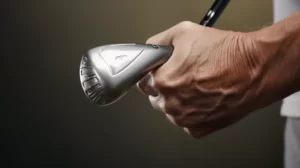When suffering from chronic pain, it’s easy to fall into the trap of narcotic addiction, eventually ruining your life and all its accompanying aspects. This is when you start desperately seeking professional help to wean yourself off those painkillers. However, it’s essential to distinguish between programs that are effective and those only set up to make money and keep you addicted.
A Serious Problem
Take the case of one patient who suffered from chronic back pain and eventually became addicted to painkillers. The addiction grew to the point where it destroyed their marriage, bankrupted them, left them unemployable, and became a dark secret they kept from family and friends. Kicking the addiction only led to the tortuous withdrawal process, with symptoms including pain, chills, diarrhea, and depression.
A Better Life
If you’re addicted to chronic pain relievers, it’s crucial to understand that there’s a better life without them. But you must seek professional help, as quitting on your own can be difficult.
Prescription Drug Rehab
Many programs offer methadone or buprenorphine as a substitute for the drug you want to quit, but this can lead to another addiction that might last for months or even years. This approach is not just ineffective, but unacceptable. Rapid or so-called ultra-rapid detoxification protocols using anesthesia might help with the first stage of detoxification, but they don’t reach the tissues and fat where the drug has been stored for months to years. More importantly, these methods do not address the psychological addiction that you must overcome, nor the source of the pain, whether physiological or psychological.
Comprehensive Program
A comprehensive program that combines lifestyle training, safe pain-relief measures, and alternative medicines can be an effective way to help you quit the addictive drugs. Here are some key components of an effective comprehensive program.
- Address the underlying causes of pain: Both physical and emotional pain can be the perceived need for narcotic pain relievers. Address these issues first.
-
Safe pain relief and elimination of narcotics: Use pain-relief measures to eliminate narcotics completely. If the pain persists, offer supplements to reduce pain and build overall health when possible.
-
Detoxification techniques: Employ methods that detoxify the drug from all body tissues over a full month to eliminate drug molecules stored in tissues. The techniques should enhance drug elimination through the skin, bowels, kidneys, lymphatics, and lungs.
-
Nutritional support and training: A healthy diet, including cleansing, juicing, whole foods, and raw foods, is essential. This not only helps combat narcotic addiction but also takes your overall well-being to the next level.
-
Spiritual and emotional training: Offer support and training that teaches healthy responses to pain. Empower patients to learn from their pain and channel it positively.
-
Teach a support person: This person should be available to help with the long-term successful recovery process once the program ends and real life begins again.
So, if you or a loved one are dealing with narcotics addiction, seeking professional help from comprehensive programs can provide the tools and support needed to overcome addiction and manage or eliminate pain for a better quality of life.



